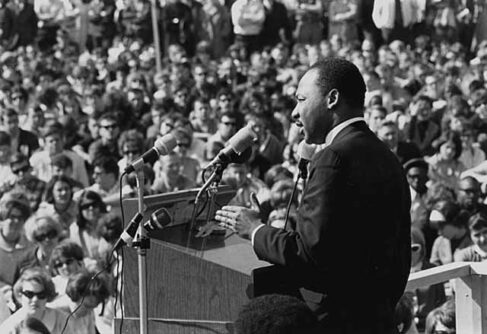The White House argues this tax hike on high-earning taxpayers is necessary to fund policies that will spur the U.S. economy and reduce unemployment. Given the White House rhetoric about the excesses of “millionaires and billionaires,” it’s hard not to think that there’s also a moral assumption underlying this proposal that high-earners should behave more generously and continue to give to non-profits without the incentive of a big tax break.
The White House must also assume that the government could do more good with the extra tax revenue than non-profits could do with the contributions they would forgo if this part of the President’s stimulus proposal passes. There’s a general recognition that lowering the charitable deduction will lower charitable gifts; the White House is ready to accept this trade-off between government and non-profit revenues.
President Obama made similar proposals to reduce the value of the charitable tax deduction in 2009 and 2010. As a presidential candidate, Obama spoke about his work as a community organizer and about the importance of community non-profits; as president, Obama has been willing to undermine the capacity of non-profits to carry out their work.
Since we are considering a reduction in the charitable deduction because of current economic challenges, it’s worth recalling that the charitable deduction was introduced to the U.S. tax code not in easy times but in challenging times.
The deduction for charitable contributions was introduced in the War Revenue Act of 1917, when the expenses occasioned by America’s entry into World War I necessitated increased income tax rates and a greatly expanded tax base.
Concern about the impact of much higher taxes on charitable giving by the wealthy led to the introduction of the deduction for charitable gifts. As explained on the Senate floor by Senator Henry Hollis of New Hampshire:
Usually people contribute to charities and educational objects out of their surplus. After they have done everything else they want to do, after they have educated their children and traveled and spent their money on everything they really want or think they want, then, if they have something left over, they will contribute it to a college or to the Red Cross or for some scientific purposes. Now, when war comes…that will be the first place where wealthy men will be tempted to economize, namely, in donations to charity.
The charitable deduction for the wealthy was extended under the leadership of Andrew Mellon, who—in addition to being one of America’s most wealthy men and a philanthropist on a grand scale—was Treasury Secretary from 1921 to 1932 under Presidents Harding, Coolidge, and Hoover. The 1924 Revenue Act (also known as the Mellon Tax Act) in particular expanded the charitable deduction for wealthy individuals in order to allow the wealthy to keep more of their wealth to support institutions of education and art.
America’s political leadership a century ago recognized the importance of the wealthy’s ability and inclination to make very large gifts to sustain our institutions of learning, culture, and welfare—gifts on a scale that are well beyond the resources of the ordinary tax-payer. In a time when so many are suffering from the economic downturn and the gap between the middle class and the well-to-do is widening, it’s easy to target the wealthy for higher taxes. However, we shouldn’t change the tax code in a way that will crimp the future access of all Americans to the American institutions that were founded and maintained by the wealthiest among us.





